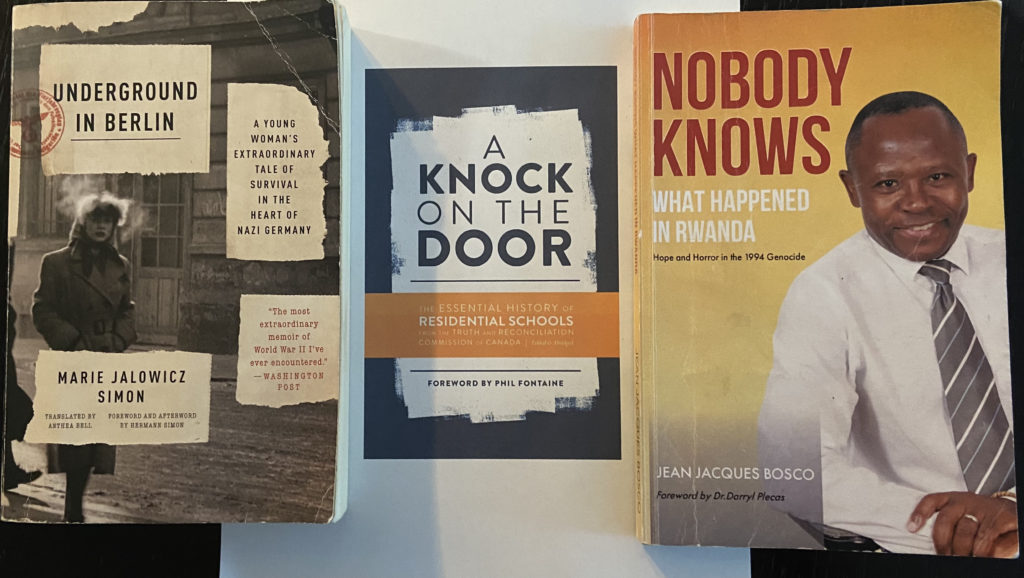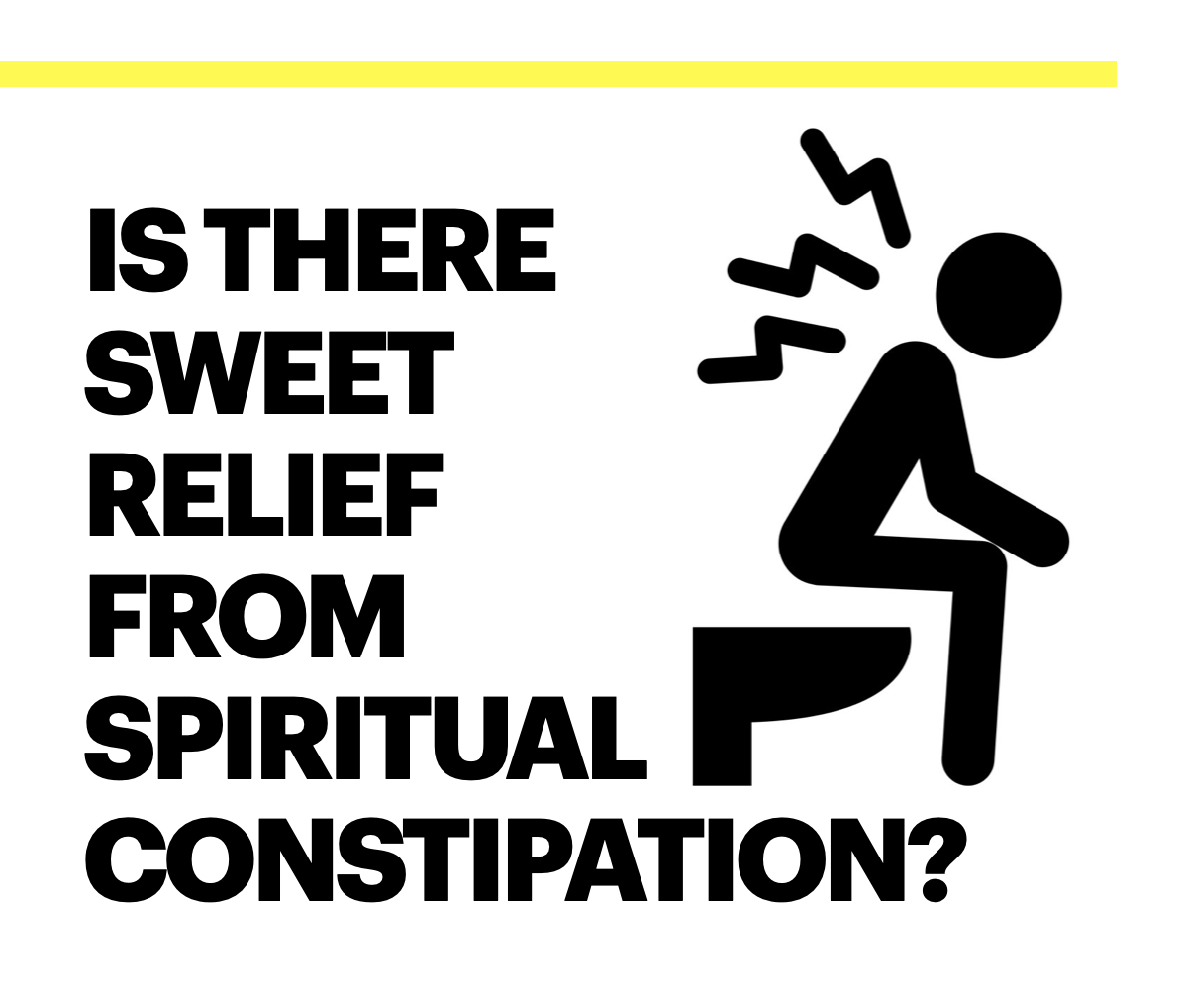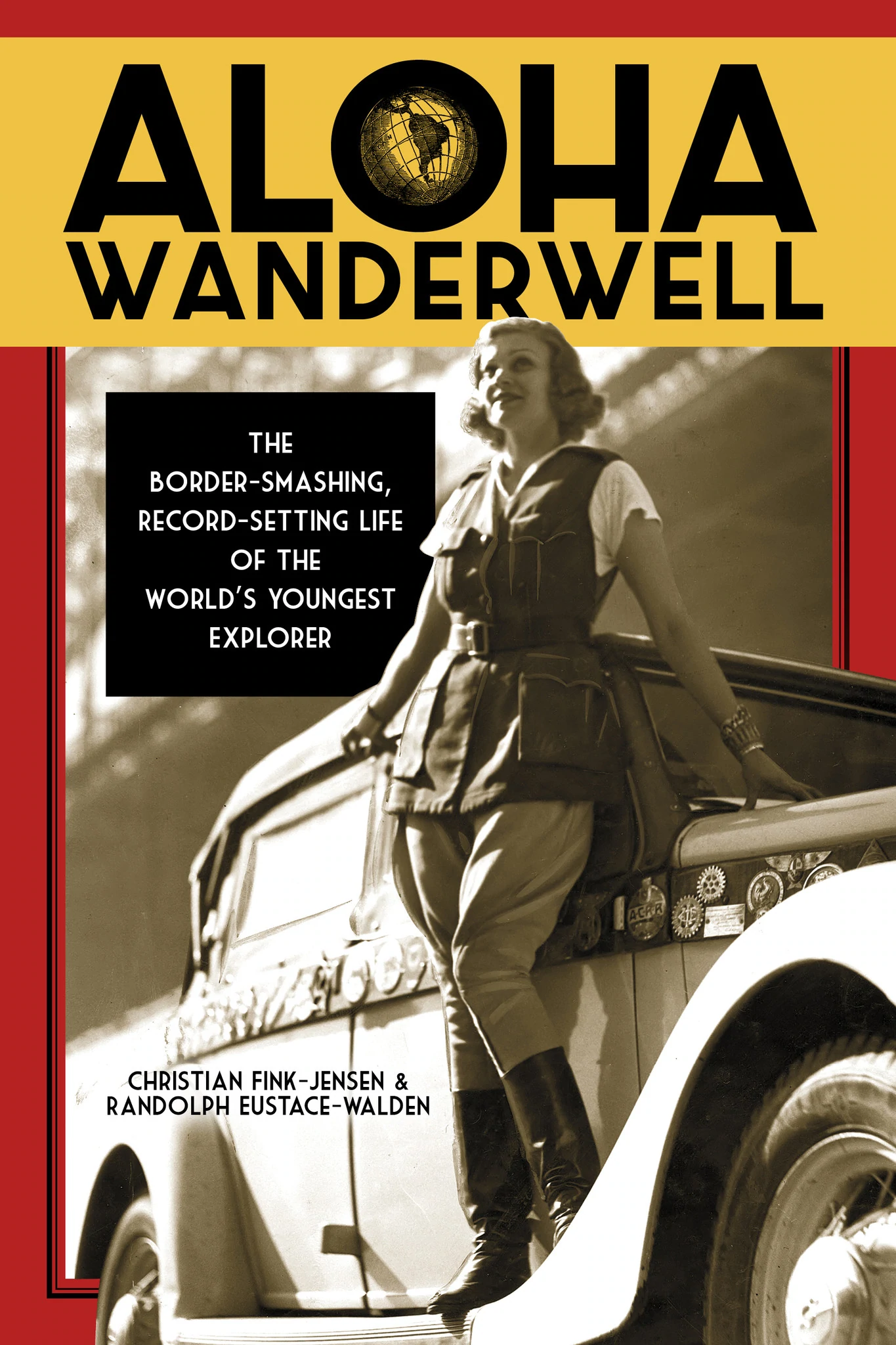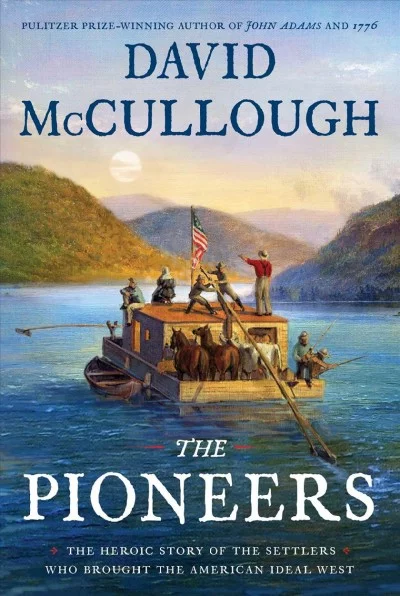Three Books on Genocide I Read this Summer
Admittedly I might need to embrace some more uplighting themes in the coming days.
However, in my defense, none of these books were on my book list. They all arrived unexpectedly.
The first landed in my lap after an argument with my daughter. “It can’t have been all bad,” I barked at her one evening after a short conversation about residential schools. She shot back at me with, “What books have you read on the subject?” Followed by “Educate yourself!” I’m not going to lie, that was hard to take from my fiery 15-year-old, but she had a point. I immediately purchased A Knock on the Door, A book produced by Canada’s truth and reconciliation commission.
My wife purchased the second book directly from the author one day in a parking lot. This Rwandan refuge escaped his countries genocide and wrote a book about it. In addition to coaching soccer, he does book sales from the trunk of his car as a side hustle.
The third was a birthday present from the same fiery daughter who told me to educate myself. For Christmas, Father’s day and my birthday, she buys me books; always historical, always about women, and always something she would be interested in!
To be clear, one book is about cultural genocide while the other two are about actual genocide. There is a big difference.
The cultural genocide is on Canada. John A. Macdonald, Canada’s first prime minister, spelled it out clear as day:
First Nation Cultural Genocide in Canada.
When the school is on the reserve, the child lives with its parents, who are savages; he is surrounded by savages, and though he may learn to read and write his habits, and training and mode of thought are Indian. He is simply a savage who can read and write. It has been strongly pressed on myself, as the head of the Department, that Indian children should be withdrawn as much as possible from the parental influence, and the only way to do that would be to put them in central training industrial schools where they will acquire the habits and modes of thought of white men. (P 23)
The culture of the “savage” had to go, so the government fashioned a plan to kill it off. It was a horrible idea that ultimately failed. But not before it ruined the lives of way too many people. The cultures of Canada’s first nations were decimated but not altogether destroyed. Thankfully, Indigenous culture has had a resurgence and is once again alive and well in Canada today as it should be.
Tutsi Genocide in Rwanda
Jean Jacque Bosco is Hutu; he was supposed to pick up a machete and do his part to rid Rwanda of its Tutsi infestation in 1994. Over one million of this ruling class minority lost their lives that year. But instead of killing Tutsi’s, he drove several busloads of them to safety, almost losing his own life several in the process. The great irony of Bosco’s story is that a colleague of his, jealous of company advancement, wrote an open letter listing Jean as a war criminal. The letter found its way into Interpol, and Bosco, who fled Rwanda because of the danger he faced saving lives, was branded a war criminal who took lives. He met the terrifying possibility of being shipped from the safety of Canada back to a Tutsi-controlled Rwanda to face trial. Finally, after about a decade of drama, his name was cleared.
Jewish Genocide in Germany
She was 20, Jewish, and from Berlin. All her friends and family were being shipped east to the extermination camps. Many Jews believed the lies that they were being relocated out east for their safety and protection. Marie did not. She was one of the few who chose to go underground. She endured starvation, rape, abortion, and the constant fear of being discovered. To survive, this upper-class, educated Jew had to hang out with Berlin’s dark underbelly. These unsavory characters hated authority, but their rebellious streak is what kept Marie alive.
Final Thoughts
Bosco suggests that it was the Tutsi’s that started the 1994 genocide of their own people! I also found it interesting that in Rwanda today, all Hutu’s giving speeches are required to begin by acknowledging the genocide of the Hutu’s against the Tutsi’s. Not unlike what Canadians must do by recognizing that we live and work on the unseeded territory of first nations people. For Jean Bosco, however, this is a terrible idea. Hutu’s and Tutsi’s have been slaughtering each other for 500 years. If Hutus must acknowledge their transgressions every time they give a speech, then so should the Tutsi. The author has little hope that the current Tutsi-led regime will do anything to prevent another blood bath in the coming years.
Hutu and Tutsi are almost indistinguishable; they share the same culture, language and religion, they often don’t even have distinguishing physical features. When the killing starts, it’s just as easy to get wiped out from people who are on your team! To add to this depressing story is the stunning realization that Rwanda is a majority Christian nation. Sadly, even the peaceful teachings of Jesus have been ineffective in keeping these warring tribes from each others throats, there are two versions of Christianity in this broken country, and churches are often the places where hatred gets spread the most.
- Genocide is the worst! How do we get there? For Canada, it was a failure to accept and work with something different than the mainstream. I hope we’ve learned our lesson.
- For Rwanda, it is centuries of mistrust and murder that every so often boils over into genocide. It is a perpetual cycle of “us versus them” with no real solution in sight.
- For Germany, it was a charismatic leader who obtained absolute power. He built hate into a make “Germany great again” ideology that to the average German looking for a saviour seemed reasonable
What are the lessons for me?
- Always keep enough space in my heart and life to experience and appreciate what is different than what I am used to. Different isn’t necessarily bad. Different isn’t something to be crushed. (Canada)
- Pursue peace and reconciliation as often as possible. The longer hatred and resentment drag out, the worse things get. (Rwanda)
- Beware of charismatic leaders who have lots of power. Power has an undeniably corrupting influence. Make sure that any power I gain in my life comes with plenty of accountability. (Germany)





One Response